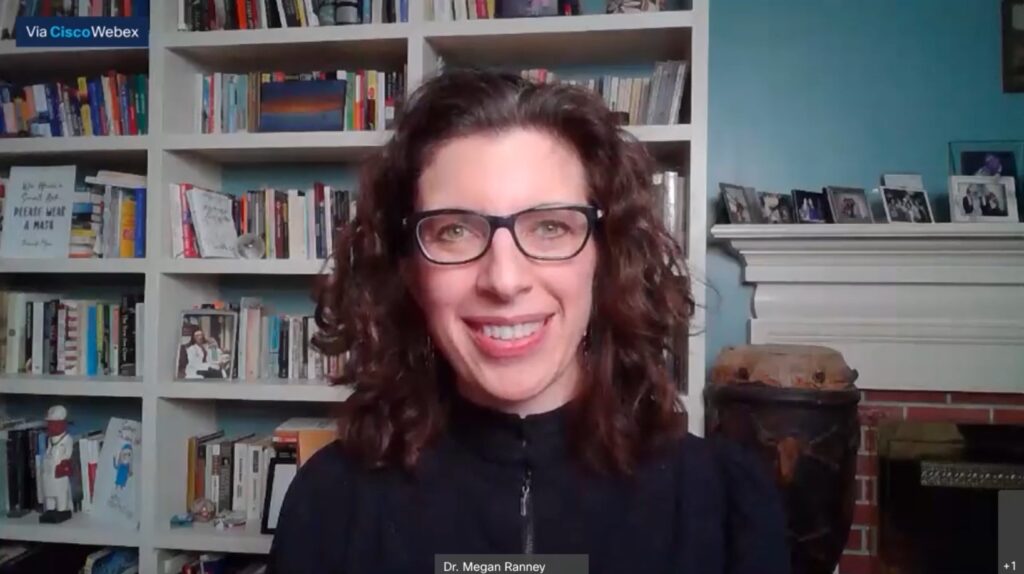“Recap: COVID-19 Vaccines: Rumors, Disinformation and the Truth with Dr. Megan Ranney”
With the rise of COVID-19, rumors and disinformation about the coronavirus have spread throughout the United States and the world. It seemed as if everyone had different knowledge about the coronavirus, and for many, it was been hard to distinguish between truth and fiction. After the coronavirus vaccines were approved, the confusion and misinformation began to circulate once more. On February 10, at 7:00 p.m., Pell Center Executive Director Dr. Jim Ludes hosted Dr. Megan Ranney on Facebook live to discuss the truth about the vaccines, the myths, and to answer audience questions in real-time.
Ranney graduated from Harvard in 1997 with a degree in History of Science. After graduation, she spent time working with the Peace Corps, and upon her return, she became a medical student at Columbia University. She is now a practicing emergency physician and researcher whose work focuses on digital health, violence prevention, and population health. Ranney has also done tremendous work around COVID-19 during its outbreak. She brought the public’s attention to the lack of protective equipment that frontline workers had access to by launching the campaign, #GetUsPPE, to collect, create and distribute personal protective equipment around the United States. She was named the 2020 Rhode Island Woman of the Year, and in 2021, Ranney became Associate Dean for Strategy and Innovation and Brown University School of Public Health.
Answering audience questions during the Facebook live event, Ranney expressed concern when asked about “vaccinating our way out of the virus.” She said that with new strains emerging, the virus has become “much more transmissible.” This means that it’s easier to catch. “Which means, given our particularly moderate levels of mask-wearing and our high levels of indoor socials, we’re going to see a lot of people get infected.” While Ranney shared her concern with this, she seemed certain that with COVID-19 evolving into different strains, there will have to be more vaccines in the future. With “herd immunity” becoming harder to achieve, ‘vaccinating out of the pandemic’ with one dose of the COVID-19 vaccine seems unlikely. Instead, we will likely see “booster” immunizations emerge to ensure better immunity among those who have already been vaccinated.
Ranney believes that our lifestyle that has been shaped by the coronavirus will not last. She said, “There is an end in sight, but your actions today do still make a difference.” She says that even though numbers are dropping, we are still seeing high infection rates compared to the summer and fall of 2021. Ranney encourages everyone to wear a well-fitting, high-quality mask and to avoid indoor socialization without a mask. She also recommends referring to the Brown Univerity’s Center for Digital Health “My COVID Risk” tool to assess the potential risk level for various activities with variables that users can set. Visit https://mycovidrisk.app/ to learn more.
Abigail Ransegnola is an English communications student at Salve Regina University and an intern at the Pell Center for International Relations and Public Policy.

